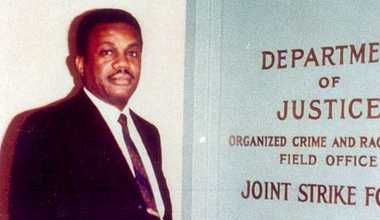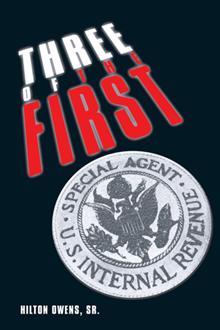
Good Morning POU!
Hilton Owens was one of the first black special agents in the Internal Revenue Service’s elite Intelligence Division.
Now called the Criminal Investigation Division, the unit pursues tax evaders. Its special agents have been called “giant-killers” for their successful cases against organized crime bosses and other powerful figures.
Owens, who died at 83 in 2007, spent 20 years as one of those agents. During the 1950s and ’60s, he often worked dangerous undercover assignments, as recounted in his 1994 book, “Three of the First,” about his exploits and those of two fellow black IRS special agents.
Owens’ months of undercover work with partner Curtis Patterson in Newport, Ky., in 1961, infiltrating the city’s casinos, broke the mob’s hold there and brought prison terms for eight members, including notorious Cincinnati gangster Frank “Screw” Andrews.
Owens chronicles his story, and those of fellow African American special agents William E. Mannie and Frederick L. Sleet, in Three of the First. The agents’ survival was solely dependant on their wits and, on occasion, their government-issued .38s. The first years were rough, and early undercover operations seemed destined to fail. The agents drove their own cars, carried no fake IDs, and had to rely on winnings at the gambling establishments they infiltrated to fund their shoestring investigations., Despite the obstacles, however, they successfully toppled several large illegal gambling operations. Throughout their careers, the three men faced challenges related to family, politics, and race, but all three advanced up the career ladder, eventually gaining supervisory positions. With their knowledge and experience, they assisted in formalizing undercover operations for the IRS.
Owens helped establish the IRS’ national training program for prospective undercover agents. He became the first black IRS special agent promoted to supervisor in the Intelligence Division, overseeing agents in Cleveland and Akron.
After retiring, Owens advised the governments of Jamaica and the Virgin Islands on how to set up programs to combat tax fraud and financial crimes. “We were not heroes,” Owens wrote of himself and his colleagues, but were “ordinary guys who happened to be African-American and should be remembered as part of black history, and also as part of the IRS family.”


